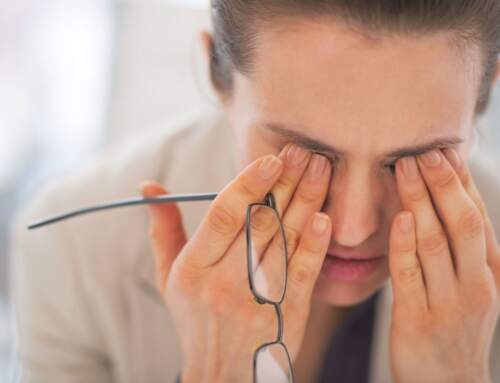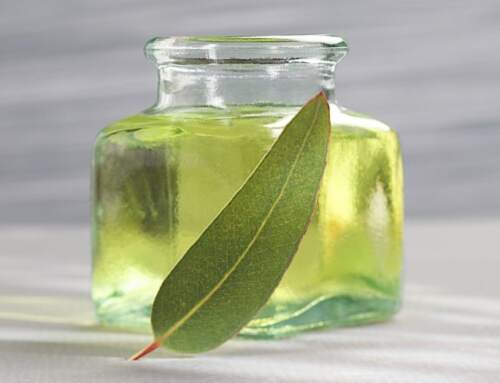You Asked: Why Do I Sweat When I Sleep?
It can be disconcerting to climb into bed, fall asleep easily and wake up drenched in sweat hours later. You may feel overheated once insomnia kicks and you just can’t seem to turn off your brain. What’s the cause of these nighttime blasts of heat?
“I started studying night sweats because I had patients asking me about them. I wanted to give them an answer so they could have better sleep quality,” says Dr. James Mold, emeritus professor of family and preventive medicine at the University of Oklahoma College of Medicine.
In 2011, Mold published a review study that looked at all the available research on the causes and symptoms of night sweats. He turned up more questions than answers. Even the definition of “night sweats” is not well-established, and descriptions of the condition range from mild to “drenching” perspiration. So diagnosing night sweats is complicated.
questions than answers. Even the definition of “night sweats” is not well-established, and descriptions of the condition range from mild to “drenching” perspiration. So diagnosing night sweats is complicated.
Why Do I Get Night Sweats
“One thing we did find is that sweating at night is associated with states of arousal and that some of the things that cause people to sweat at night include [antidepressants] or blood pressure medications, alcohol or eating too close to bed or other medical conditions,” Mold says. Each of these can disrupt the body’s natural metabolic slow-down or temperature-control mechanisms, and so affect quality sleep, his study suggests.
Of course, the hormone shifts associated with menopause are also a common cause of severe hot flashes, says Dr. Hadine Joffe. Even if you’re not waking up in a pool of sweat, these menopause symptoms and hormone shifts can cause “mini arousals”—basically, periods of very light sleep. These can cause a person to feel unrefreshed or “sapped” during the day. Women on hormone therapy may find that night sweats occur less often.
Intense exercise too close to bed can also “throw off” the body’s thermoregulation processes, says Michael Grandner. He explains that a person’s body temperature naturally dips just before bed, which promotes sleep. Eating (especially spicy foods) or exercising too close to bed can be two causes of night sweats. This increases heat production and so may interfere with the body’s natural powering down.
But what about the sudden surge of heat on those nights when you can’t sleep and woke up sweating? Those could be caused by everything from an over-active brain to your sleeping environment. “Pajamas, mattresses, and sheets that don’t breathe well can often be the cause of excessive sweating,” Grandner says.
Your body’s built-in sleep clocks cause your core temperature to drop during the hour or two before bed.
Once you’re asleep, it should continue to drop very gradually until reaching its lowest point sometime around 3 A.M., Grandner explains. Anything that messes with those normal temperature progressions can disrupt your sleep. If you were nice and cool when you got into bed, loading up on heavy pajamas or too many blankets could trap heat. This disrupts your body’s natural temperature slide and keeps you awake. Wear light, loose fitting clothes to bed to prevent excessive perspiration at night.
There’s also some evidence linking insomnia with higher levels of autonomous nervous system arousal, including a rapid heart rate, higher metabolism, and increased body temperature. While the research is a little spotty, it suggests an overactive, agitated mind—one preoccupied with worry or thoughts of the coming day—could lead to the release of the stress hormones cortisol, which could rev up some internal functions that produce heat.
That could explain why, on nights when you can’t sleep, you end up kicking off your covers and turning over your pillows in search of some cool comfort.
To stave off the night sweats, start by swapping out your existing bedding for comforters and sheets that breathe well and keep cool. Untreated cotton is always a good, affordable option. Grandner also says that many foam mattresses trap heat; be sure to select a mattress (and mattress pad or topper) that will help promote cool sleeping.
(and mattress pad or topper) that will help promote cool sleeping.
Sleeping with one foot outside of your covers may also help.
“The bottom of the feet have important temperature sensing functions. Your feet help the body maintain a cool sensation even under a warm blanket,” Grandner says. The same is true of your neck, so try to keep it and your head outside of your comforter. (Some research shows that cooling your head at night, either with a cooling cap or by turning down the thermostat to a lower temperature, can combat insomnia in most cases.)
Can a massage help with night sweats?
You may be wondering, “How can a massage help me if I woke up sweating?”. It depends on what is causing the sweating. If you are getting hot at night due to a medical condition like high blood pressure, a deep tissue massage may help put you in a more relaxed state to prevent you from waking up. A deep tissue massage can help rid the body of lactic acid easing muscle soreness and help increase blood flow. Massage therapy is perfect for pain relief and can even boost the immune system. Talk to your massage therapist about your concerns. If anything massage therapy will help your muscle tissue feel good and help you sleep better for the moments you are asleep. Give us a call to schedule or schedule online! 614-604-6358
On the other hand, a 4-handed massage from 2 extreme deep tissue massage therapists may actually cause post massage soreness which can lead you to have night sweats and even flu-like symptoms afterward. If it’s been a while since you’ve had a massage or your body is delicate, opt for a gentle massage. Although it may not feel like it, a gentle, relaxing massage session can be even more effective than a deep tissue massage for the lymph system and circulatory system.
What are the benefits of a deep tissue massage?
Deep tissue massages have been found to:
- alleviate sore muscles and chronic pain
- strengthen the immune system
- stimulate the lymphatic system to aid in the removal of toxic waste
- de stress




